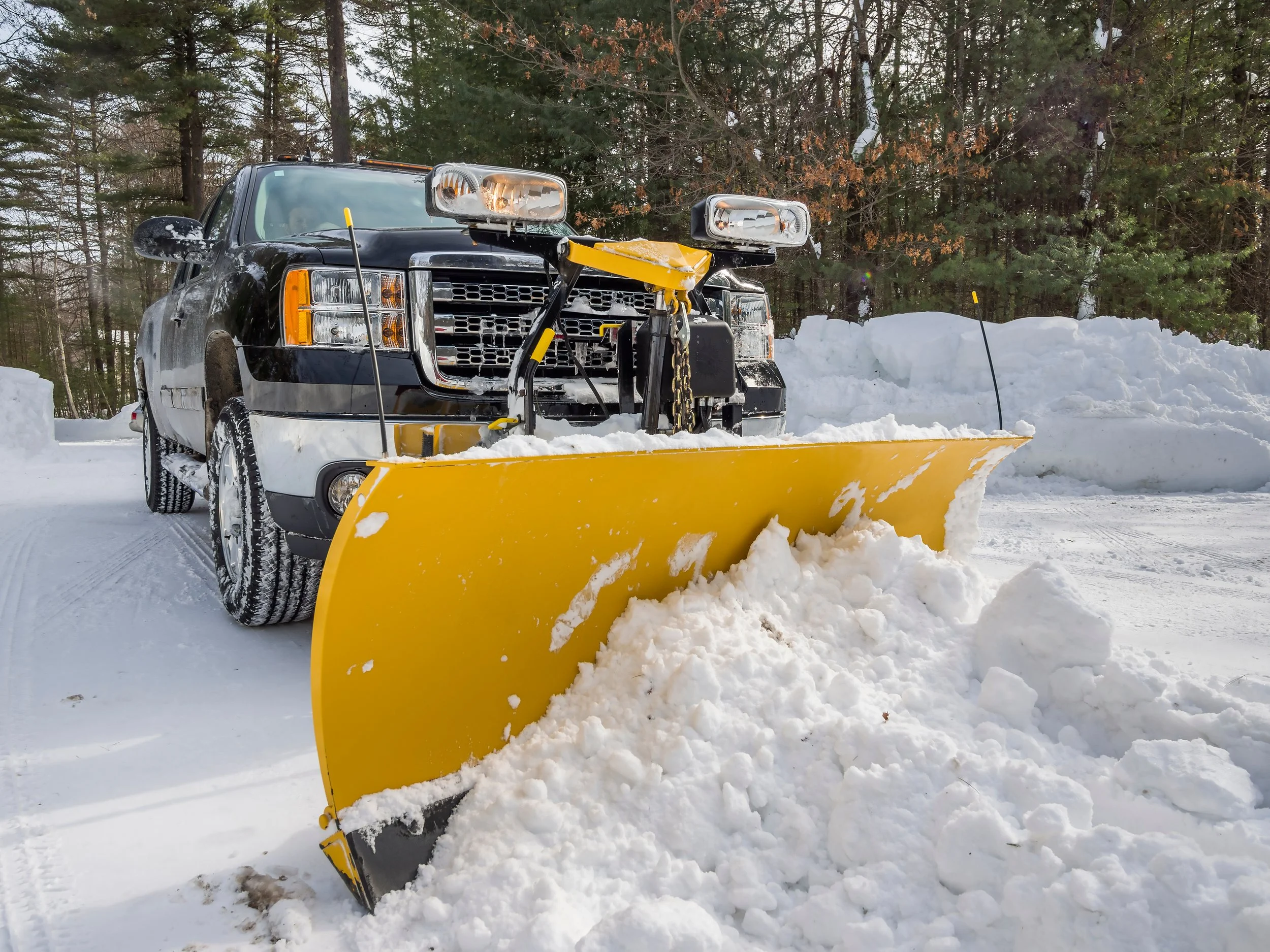The Hidden Costs of Traditional Snow Plowing
Most homeowners think snow plowing is the simplest way to clear a driveway. A truck arrives, the blade drops, and in a few minutes the path looks clean enough to drive.
But when the snow melts—or worse, freezes again —the real costs start to show. What looks like convenience often comes with damage, repair bills, and safety issues that add up over the winter.
Driveway and Pavement Damage
Plow blades scrape across asphalt and concrete with heavy force. Each pass can chip at the surface, wear away sealant, and leave behind micro-cracks that widen with every freeze-thaw cycle.
Over time, those small scrapes become potholes and crumbling edges. Even a professional plow operator can’t avoid it entirely—it’s the nature of the equipment.
Lawn and Curb Destruction
When snow piles stack up along the edges, plows tend to push beyond the driveway line. That can rip up grass, gouge curbs, and leave behind deep ruts that only appear when spring arrives.
The clean-up costs aren’t just cosmetic. Damaged lawns need reseeding and leveling, and broken curbs can create drainage problems that worsen each season.
Hidden Ice Hazards
Plowing often leaves behind a thin, packed layer of snow that quickly turns to ice. The truck blade can’t reach uneven surfaces, brick aprons, or tight corners—especially near garage doors or walkways.
That leftover layer freezes into a slick surface that refreezes after every melt, creating daily slip hazards for families, mail carriers, and visitors.
The Cost of Repeated Repairs
Add up a winter’s worth of plow passes and you’re not just paying for the service — you’re paying for the damage it causes. Many homeowners spend hundreds each spring fixing lawn edges, sealing cracks, or replacing broken pavers.
Over several winters, that hidden expense far outweighs the short-term convenience of plowing.
A Smarter, Cleaner Approach
Modern snow blowing services eliminate most of these problems. Instead of pushing and scraping, snow is gently lifted and blown off the surface—preserving driveways, protecting lawns, and leaving behind a cleaner, safer finish.
For property owners who want their home to look just as good in April as it did in November, switching to snow blowing isn’t just about appearance. It’s an investment in long-term property care.

